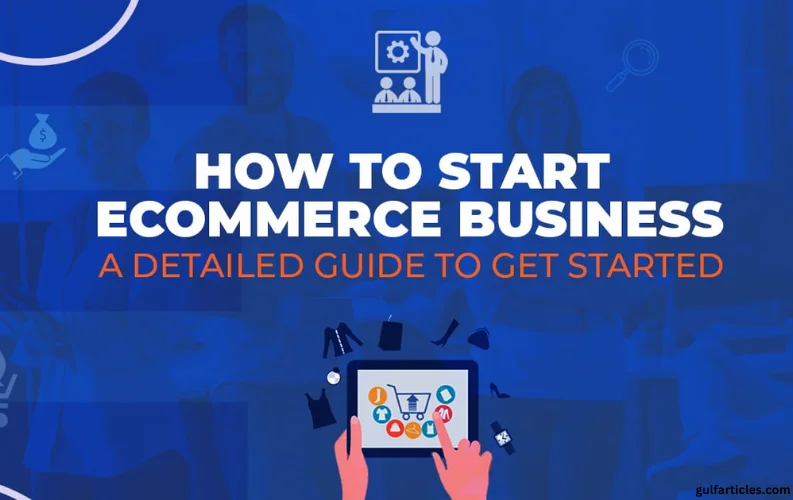Starting an e-commerce business from scratch can be a lucrative endeavor, but it requires careful planning, research, and execution.
The rise of digital shopping has created immense opportunities for entrepreneurs to establish online stores and generate substantial revenue. However, success in the e-commerce space depends on understanding market trends, consumer behavior, and strategic business decisions. With the right approach, anyone can build a sustainable and profitable e-commerce business. This guide provides a step-by-step process to help you get started and grow your online store effectively.
1. Identify a Profitable Niche
Choosing the right niche is crucial for success in e-commerce. A well-defined niche helps differentiate your brand from competitors and attract a specific audience. Consider the following factors when selecting your niche:
-
Market Demand: Use tools like Google Trends, Amazon Best Sellers, and keyword research to analyze demand for potential products.
-
Competition Analysis: Study existing competitors, their pricing, and customer reviews to identify market gaps and opportunities.
-
Profitability: Ensure that the niche has a viable profit margin, taking into account costs like product sourcing, shipping, and marketing.
-
Personal Interest & Expertise: A niche that aligns with your passion and knowledge can increase your motivation and ability to connect with your audience.
2. Conduct In-Depth Market Research
Understanding your target audience and industry trends is essential for making informed business decisions. Key areas to research include:
-
Customer Demographics: Identify age, gender, location, interests, and online shopping behaviors.
-
Industry Trends: Stay updated with emerging trends, seasonal demands, and shifts in consumer preferences.
-
Pain Points & Solutions: Look for problems that consumers face and how your products can provide effective solutions.
-
Competitive Analysis: Evaluate direct and indirect competitors to understand their strengths, weaknesses, and unique selling points.
3. Choose the Right E-commerce Business Model
E-commerce businesses operate under different models, each with its own advantages and challenges. Select the one that best suits your budget, expertise, and scalability goals:
-
Dropshipping: A low-risk model where you sell products without holding inventory. The supplier fulfills orders on your behalf.
-
Wholesale and Retail: Buying products in bulk at discounted prices and selling them at a markup for profit.
-
Subscription Model: Offering recurring product deliveries for a consistent revenue stream.
-
Print-on-Demand: Selling customized products like apparel, accessories, and home decor with on-demand printing.
-
Handmade or Custom Products: Selling unique, handcrafted, or personalized items through an e-commerce platform.
4. Build an E-commerce Website
A professional and user-friendly website is the foundation of your online business. Follow these essential steps to create an optimized e-commerce store:
-
Choose an E-commerce Platform: Shopify, WooCommerce, Magento, and BigCommerce are popular choices.
-
Design a Mobile-Friendly Website: Ensure a seamless user experience across all devices.
-
Optimize Navigation and Layout: Implement clear categories, a search bar, and easy checkout options.
-
Secure Payment Gateways: Integrate multiple payment options, including credit cards, PayPal, and digital wallets.
-
Fast Loading Speed: Optimize images, enable caching, and use a reliable hosting provider for quick site performance.
-
SEO Optimization: Use keyword-rich product descriptions, meta tags, and alt-text for search engine visibility.
5. Source High-Quality Products
The success of your e-commerce business relies on the quality and reliability of your products. Consider these sourcing options:
-
Work with Reputable Suppliers: Research suppliers on platforms like Alibaba, AliExpress, and local manufacturers.
-
Manufacture Your Own Products: If you have a unique product idea, consider producing it yourself or partnering with a manufacturer.
-
Private Labeling: Customize generic products with your branding for exclusivity.
-
Test Product Samples: Order samples before committing to bulk purchases to ensure quality standards.
6. Develop a Strong Marketing Strategy
An effective marketing strategy helps attract customers and drive sales. Use these digital marketing techniques to grow your business:
-
Search Engine Optimization (SEO): Optimize product pages and blog content to improve organic search rankings.
-
Social Media Marketing: Promote your store on platforms like Instagram, Facebook, Pinterest, and TikTok.
-
Influencer Collaborations: Partner with influencers to increase brand awareness and credibility.
-
Email Marketing: Build an email list and engage customers with newsletters, product updates, and exclusive offers.
-
Paid Advertising: Use Google Ads, Facebook Ads, and retargeting campaigns to reach potential customers.
-
Content Marketing: Create valuable blog posts, videos, and tutorials to position your brand as an authority in your niche.
7. Enhance Customer Experience for Long-Term Success
Providing an excellent customer experience builds brand loyalty and boosts repeat purchases. Key areas to focus on include:
-
Fast and Reliable Shipping: Partner with trusted logistics providers to ensure timely deliveries.
-
Easy Return and Refund Policies: Simplify the process for customers to build trust and encourage purchases.
-
Personalized Customer Support: Offer live chat, email, and phone support to assist customers promptly.
-
Loyalty Programs and Discounts: Reward returning customers with discounts, points, and exclusive deals.
-
User-Generated Content: Encourage customers to share product reviews and testimonials for social proof.
8. Track Performance and Scale Your Business
Regularly monitoring your e-commerce performance allows you to refine your strategies and scale effectively. Consider these steps:
-
Analyze Sales Data: Use tools like Google Analytics and Shopify Analytics to track conversion rates and revenue.
-
A/B Testing: Experiment with website layouts, pricing strategies, and marketing campaigns to optimize results.
-
Expand Your Product Line: Introduce complementary products to increase average order value.
-
Automate Business Operations: Utilize automation tools for inventory management, email marketing, and customer support.
-
Explore International Markets: Expand your reach by offering worldwide shipping and localized content.
Conclusion
Starting a profitable e-commerce business from scratch requires dedication, strategic planning, and continuous learning. By selecting the right niche, building a user-friendly website, and implementing effective marketing strategies, you can establish a successful online store. Focus on delivering high-quality products, providing excellent customer service, and staying updated with industry trends to ensure long-term growth and profitability. With perseverance and adaptability, your e-commerce venture can thrive in the competitive digital marketplace.
You may also like:-




















